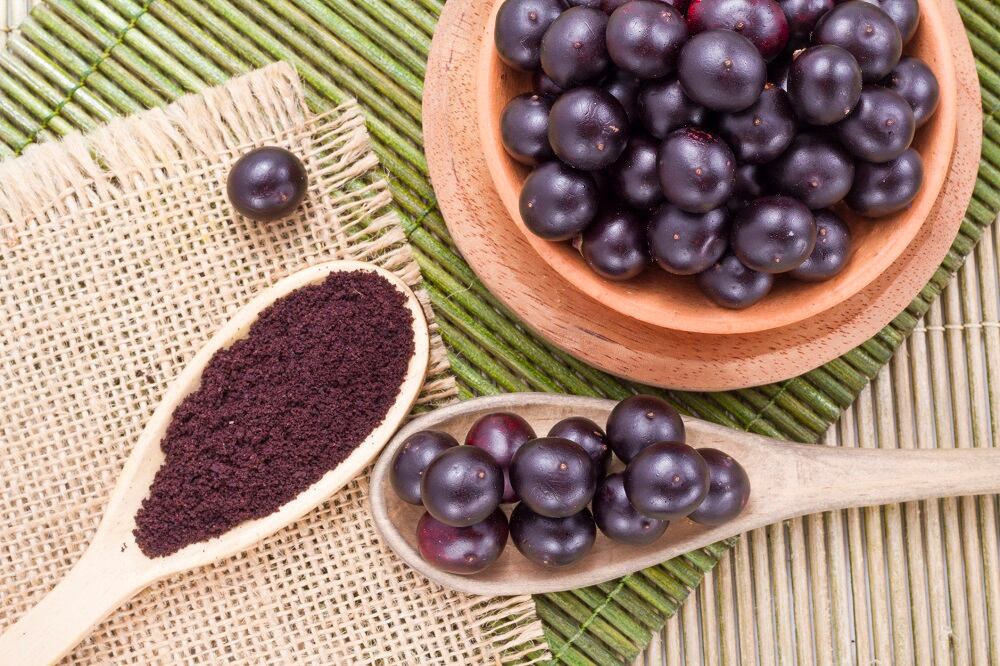The study published in Archives in Biosciences & Health, investigated whether the widely-consumed Amazonian fruit açaí [Euterpe oleracea, Mart.) had antitumor effects on prostate cancer cells (PCa) and if there was any potential synergism between the fruit and docetaxel, a chemotherapy drug used to treat advanced prostate cancer.
The study formed part of a wider project authorized by Brazil's Ministry of Environment to investigate native species with potential biological impacts on human health.
Novel findings for future research
Researchers from the Federal University of Santa Maria in Brazil noted: “The results presented here could be considered novel and suggest that açaí could be used [as a] nutritional supplement in order to prevent PCa or the progression of PCa disease.”
Speaking to NutraIngredients-LATAM, lead author of the study and Pharmacology PhD student Micheli Lamberti Jobim said further studies “would be of great value”; in particular in vivo research testing açaí supplementation on patients with prostate cancer.
“Knowing that food is responsible for maintaining our health and preventing various diseases, our team wants to continue these studies, not only in relation to prostate cancer, but also in other chronic diseases that need specific care and attention,” Jobim told NutraIngredients-LATAM.
“Given the results presented in our study and other studies in relation to prostate cancer, I believe that açaí, in the form of a supplement or powder could rather be used in clinical nutrition, as a coadjuvant in the treatment and prevention of cancer,” he said.
'Significant cytotoxic and antiproliferative action'
The researchers wanted to investigate açaí and prostate cancer given Northern regions of Brazil presented a lower prevalence than other geographical regions. “It is possible that differential nutritional patterns based on pre-Colombian diets rich in habitual fruit and fish consumption could have come protective role against PCa,” they wrote.
The researchers hypothesized that açaí's chemical matrix, particularly its richness in bioactive molecules, meant it could have some cytotoxic effect against prostate cancer.
The team conducted the study using açaí hydro alcoholic extracts of varied concentrations (between 1-1000 μg/mL) obtained from fresh fruit samples sourced from Manaus city in the Amazonas, and a DU-145 human prostate cancer cell line from the American Type Culture Collection (ATCC).
Results showed açaí extracts at lower concentrations, between 1-10 μg/mL, presented “significant cytotoxic and antiproliferative action against PCa cells”.
This effect, the researchers said, was likely associated with the “strong down-regulation” of the Bcl-2 gene. The B-cell lumphoma 2 gene is the founding member of a family of regulator proteins that regulate cell death (apoptosis) by either inhibiting or inducing it. When unbalanced, Bcl-2 genes can act as a barrier to cell death and facilitate tumor development and resistance to cancer therapy.
The researchers said this significant down regulation effect seen with the açaí extracts was similar to effects seen in cells treated with docetaxel. Although a look into potential synergism between the extract and drug showed açaí “did not contribute to improve docetaxel effects on PCa cells”.
Açaí's cytotoxic and antiproliferative effects were evaluated and confirmed by MTT assay, the researchers said, as well as complementary testing that included necrosis analysis, cell cycle analysis and clonogenic assays.
Importantly, findings showed concentration levels were important. Açaí extracts applied at higher concentrations (more than 100 μg/mL) actually “stimulated cell survival” rather than decreased viability, the researchers said. And while all concentrations showed an antiproliferative effect on PCa cells, it was more pronounced with concentrations of 1-10 μg/mL.
‘Elevated levels' of secondary compounds
The researchers said antiproliferative activity was likely related to the fruit's matrix. Chemical characterization of the açaí extracts identified 12 bioactive molecules; seven of which were found in higher concentrations – orientin, apigenin, p-Coumaric acid, cyanidyn-3-0-glucoside, epicatechin, luteolin, and vitexin.
“Açaí's antitumor effects could be related to elevated concentrations of orientin plus vitexin, p-coumaric acid, apigenin and catechins present in its chemical matrix, which are molecules with antitumor effects previously described in the literature.”
Orientin, for example - the molecule present at the highest concentration in the açaí extracts - had “several biological properties” demonstrated in previous studies, the researchers said, including antitumor effects against human liver and esophageal cancer cells and an ability to decrease proliferative tumor markers in rats.
Phenolic acid p-Coumaric acid, the second most-concentrated metabolite in the açaí extract, served as a precursor to other phenolic compounds that presented antitumor activity against prostate cancer and and apigenin had numerous studies suggesting antitumoral mechanisms in cancer, including prostate.
“Apigenin found in the açaí extract probably had an important role in the antitumor activity observed in the PCa cells. This antitumor effect also could be accentuated by catechins and luteolin also found in the açaí extract and that present capacity to modulate differentially BAX and Bcl-2 genes,” they wrote.
Source: Archives in Biosciences & Health
Published online ahead of print, March 2019 Pages 1-18. Doi: 10.18593/abh.16966
Title: “Açaí (Euterpe Oleracea, Mart.), an Amazonian Fruit has Antitumor Effects on Prostate Cancer Cells”
Authors: M. Jobim, F. Barbisan, M. Fortuna, C. Teixeira, A. Boligon,E. Ribeiro, & I. Cruz.

